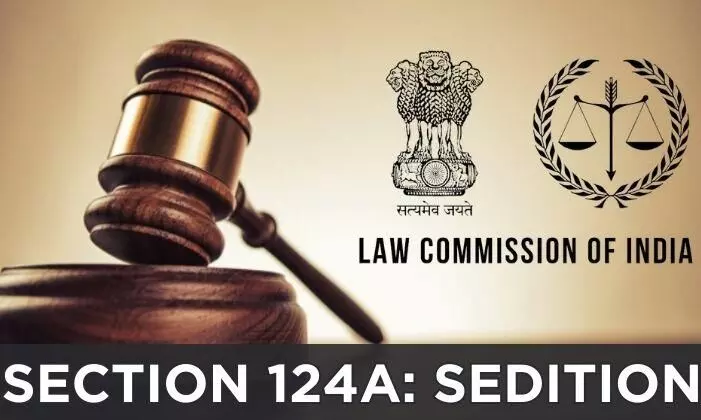
This anti-people law should be scrapped
text_fieldsNow is the time to register opinion on whether to retain or scrap the Sedition law. While hearing the petition filed by a few organizations in the Supreme Court demanding the withdrawal of this colonial-era law, the then Chief Justice N.V. Ramana had hinted that he agreed with the opinion that it should be scrapped. However, the Union government requested the court to defer the verdict saying that it was set to re-visit the law at the government level. Considering the Centre’s request, the court only froze the Sedition law pending a final decision. When the Law Commission, which was appointed as part of the review process, submitted its report recently, it surprised many. The Commission’s recommendations were against the position of democratic and human rights organisations. Not only does the Commission's report recommend retaining the Sedition law, but it also suggests an expansion of the definition of the law and enhanced punishment. What has in effect, happened is that arguments in favour of the Sedition law have been advanced by delaying the judgment which would have been given by the judiciary. Law Minister Arjun Ram Meghwal has stated that the Commission's report is only a recommendation and whether to accept it or not will be decided after consultation with the parties concerned. Constitutional experts, legal scholars and human rights groups are generally of the opinion that the Law Commission report should be rejected and the Sedition law be repealed forever.
 Also Read:Law panel says sedition law should be retained with safeguards to prevent misuse
Also Read:Law panel says sedition law should be retained with safeguards to prevent misuse
According to the law introduced by the British colonial government in 1870s to suppress the independence movement, it was treason to express 'displeasure' towards the government. This law is still being practiced in independent India in Indian Penal Code 124A. It is an offense punishable with life imprisonment or three years imprisonment. According to the law, any expression of opinion that 'tends' to disturb law and order comes under the ambit of 'displeasure'. The law has now been interpreted by the Law Commission to mean that anything that 'tends' to incite violence or disturb the order of peace is sedition. Here the law is being made to make any criticism of the government treason. The Law Commission also has recommended raising the maximum punishment from three years to seven years. In support of this, the Commission highlights the Supreme Court judgment in Kedarnath Singh case of1962 in which the apex court judgement, while retaining the Sedition law, ruled that there could be 'reasonable restriction' on the fundamental right of freedom of expression in the interest of public order. Even then, the Court had hinted that the Sedition law was not to be used at will. Not only that, the jurisprudential stances on freedom of expression and treason have subsequently evolved at the global level. The Law Commission has now put forward regressive arguments against all that. It is now clear that the Commission, which says that the misuse of law is not a reason to abolish it, has not been willing to study the misuse of the law even for such a significant report. The relevant chapter in the report is titled 'Alleged misuse of 124A' which means that the Commission did not find misuse as a a proven fact. During the period 2014-2019, 326 sedition cases were registered; out of this, chargesheet was filed only in 141 cases and only six people were convicted. It has to be assumed that no such figures have caught the eye of the commission.
Criticism has already been raised that the commission acted with the prejudiced intention of retaining the crime of sedition. It cannot be ascertained from the Commission's website that they have conducted adequate consultations. The Supreme Court has observed several times that any restriction on fundamental rights should be reasonable and should be applied only when there are no other means. The recommendations in the Commission's report do not meet any of these conditions. There are enough reasons to scrap, not retain the draconian colonial-era law that curtails freedom of expression which the police and the bureaucrats use as a weapon to harass the citizens. Abuse of that law is on the rise. Criticizing the government and ministers is portrayed as treason. Given that there are other constitutionally enacted laws to prevent violence and ensure law and order, Sedition law which is not in line with the Constitution, should not stand. If the scope of sedition can include, for example, an intention to report on the rape and murder of a Dalit girl, legitimately raising one’s voice for the rights of the citizens and working for the rights of the tribals, then that law is against the nation. It should be scrapped.
 Also Read:Chidambaram questions Law Commission's recommendations on sedition law
Also Read:Chidambaram questions Law Commission's recommendations on sedition law
























